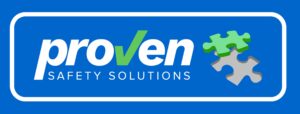As an officer or director of a Person Conducting a Business or Undertaking (PCBU) in Australia, you need to be aware that evidence is required to support a reasonable defence should something go wrong. Your leadership, and evidence of the diligence you undertake, is your best defence against any prosecution that may be brought against you. Let’s delve deeper into each aspect outlined in the section you provided, which outlines specific requirements for due diligence in Australia:
Acquiring and Keeping Up-to-Date Knowledge of Work Health and Safety Matters
Ensuring due diligence involves actively seeking out information and staying informed about relevant work health and safety (WHS) matters. This includes understanding the latest legislation, regulations, codes of practice, and industry standards related to health and safety. It also involves staying informed about emerging trends, new technologies, and best practices in WHS management. By staying up-to-date, employers can better identify hazards, assess risks, and implement effective control measures to protect workers and others affected by their work activities.
Understanding the Nature of Operations and Associated Hazards
Effective risk management begins with a thorough understanding of the business or undertaking and the hazards and risks associated with its operations. This requires employers to conduct comprehensive risk assessments that consider all aspects of the workplace, including processes, equipment, materials, and work environments. By gaining a deep understanding of the specific hazards and risks present in their operations, employers can develop targeted strategies to eliminate or minimize those risks and prevent accidents and injuries.
Providing and Using Appropriate Resources and Processes
Employers have a responsibility to ensure that adequate resources and processes are in place to eliminate or minimise risks to health and safety. This includes providing appropriate equipment, tools, and personal protective equipment (PPE) to workers, as well as implementing effective safety procedures and control measures. It also involves allocating sufficient time, budget, and personnel to support WHS initiatives and ensuring that workers are adequately trained and competent to perform their duties safely.
Establishing Processes for Incident and Hazard Reporting
Effective incident and hazard reporting processes are essential for identifying and addressing risks in a timely manner. Employers must establish clear procedures for workers to report incidents, near misses, hazards, and concerns related to health and safety. They must also ensure that these reports are promptly investigated, documented, and acted upon to prevent recurrence and improve safety performance. By encouraging open communication and feedback, employers can create a culture of transparency and accountability that fosters continuous improvement in safety management.
Implementing Processes for Compliance with Legal Obligations
Compliance with legal obligations is a fundamental aspect of due diligence in WHS management. Employers must establish and implement processes to ensure that they meet their duties and obligations under the relevant legislation, regulations, and standards. This includes conducting regular audits and inspections to assess compliance, addressing any non-compliance issues promptly, and maintaining accurate records to demonstrate compliance with legal requirements. By prioritising compliance, employers can reduce the risk of regulatory penalties and legal liabilities while safeguarding the health and safety of their workers.
Verifying Provision and Use of Resources and Processes
Verification is essential to ensure that the resources and processes established for WHS management are effectively implemented and utilised. Employers should conduct regular reviews and audits to verify that control measures are in place and being followed, that resources are allocated effectively, and that safety procedures are being adhered to. This may involve conducting site inspections, reviewing documentation, and consulting with workers and other stakeholders to assess the effectiveness of WHS initiatives. By verifying compliance and performance, employers can identify areas for improvement and take corrective action to enhance safety outcomes.
In summary, the section on due diligence outlined in Australian WHS legislation emphasises the importance of proactive risk management, continuous improvement, and compliance with legal obligations to ensure the health and safety of workers and others affected by work activities. By fulfilling these requirements, employers can create safer workplaces, prevent injuries and illnesses, and promote a culture of safety and well-being.
To download our free Officers Due Diligence checklist Click Here! If you have any specific aspects, you’d like more information on or if you have further questions, reach out by Clicking Here!



